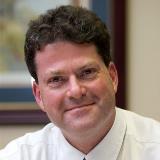Case Decisions
Brief History of Schoolhouse Speech
For over 50 years, schools have known that teachers and students retain rights to freedom of expression, including speech, in schools. See Tinker v. Des Moines Indep. Cmty. Sch. Dist., 89 S.Ct. 733 (1969). However, in Tinker the United States Supreme Court recognized boundaries of that freedom: student expression is allowed if it does not “for any reason ... materially disrupt[] classwork or involves substantial disorder or invasion of the rights of others ....” Id. at 513.
In the intervening years, the Court has addressed additional contours of student speech and provided us exceptions to the Tinker standard. All involved in-school student speech. In 1986, the Court held that a student’s “offensively lewd and indecent” speech at a school assembly was not protected by the First Amendment. Bethel Sch. Dist. No. 403 v. Fraser, 106 S.Ct. 3159 (1986). Two years later, the Court concluded that a school district could essentially protect its brand by regulation of the style and content of school-sponsored newspapers. Hazelwood Sch. Dist. v. Kuhlmeier, 108 S.Ct. 562 (1988). In 2007, the Court heard the so-called “BONG HiTS 4 JESUS” case. Morse v. Frederick, 127 S.Ct. 2618 (2007). The Court held that the school could legally prohibit speech which “advocat[ed] illegal drug use” – characterizing such speech as reflecting a “grave and ... unique threat to the physical safety of students.” Id. at 425. In addition to Tinker and the three subsequent seminal cases, “true threats” are also not protected speech under the First Amendment. Virginia v. Black, 123 S.Ct. 1536 (2003).
Several circuit courts of appeal have ruled that school districts may hold students accountable for off-campus behavior. See, e.g., Bell v. Itawamba County Sch. Bd., 799 F.3d 379, 390 (5th Cir. 2015) (en banc). In Itawamba, the Fifth Circuit recognized sister circuits which have “held that, under certain circumstances, Tinker applies to speech which originated, and was disseminated, off-campus.” Itawamba, 799 F.3d at 395. Vast and accelerating technological advances–as well as changing cultural circumstances—now prompt an examination of whether and to what degree school officials’ authority extends beyond the schoolhouse gates.
The Supreme Court Speaks About Off-Campus Speech
Until the most recent term, the United States Supreme Court had not addressed the issue of off-campus student speech. Its highly anticipated decision in Mahanoy Area School District v. B.L., 141 S.Ct. 2038 (2021) provided some answers but left open many questions. Justice Alito stated in his concurring opinion, “This is the first case in which we have considered the constitutionality of a public school’s attempt to regulate true off-premises student speech ….” 141 S.Ct. at 2048. The Court introduced the case as follows: “A public high school student used, and transmitted to her Snapchat friends, vulgar language and gestures criticizing both the school and the school’s cheerleading team. The student’s speech took place outside of school hours and away from the school’s campus.” 141 S.Ct. at 2042–43.
B.L., a rising tenth grade student, failed to make the varsity cheerleading team; instead, her high school offered her a JV spot. Apparently upset with the outcome, B.L. distributed her profanity laced dissatisfaction via social media, to a group of up to 250 who could view for 24 hours from posting. Not surprisingly, the post spread to others, including another member of the cheerleading squad whose mother was a coach for the squad. Students upset with the posts approached other cheer coaches. The coaches in turn met with the school principal. Finding the posts in violation of school rules for extracurricular activities, the school suspended B.L. from the JV cheer squad for her sophomore year. B.L.’s apologies did not move school or district administration. B.L. and her parents filed suit in federal district court. Id. at 2043.
After granting a TRO and preliminary injunction reinstating B.L. to the JV squad, the district court granted B.L.’s motion for summary judgment. The court “found that B. L.’s Snapchats had not caused substantial disruption at the school.” Id. at 2044. Also, the district court “declared that B. L.’s punishment violated the First Amendment, and it awarded B. L. nominal damages and attorneys’ fees and ordered the school to expunge her disciplinary record.” The Third Circuit affirmed the district court’s decision, concluding that Tinker did not apply to off-campus speech. Id. at 2044.
The Supreme Court rejected the Third’s Circuit’s broad categorical rule that would effectively remove off-campus speech from the reach of school administrator’s discipline. See 141 S.Ct at 2045 (stating “Unlike the Third Circuit, we do not believe the special characteristics that give schools additional license to regulate student speech always disappear when a school regulates speech that takes place off campus.”). Instead, the Supreme Court provided the following guidance: “[T]hree features of off-campus speech that often, even if not always, distinguish schools’ efforts to regulate that speech from their efforts to regulate on-campus speech. Those features diminish the strength of the unique educational characteristics that might call for special First Amendment leeway.” Id. at 2046.
First, the Court stated that “[g]eographically speaking, off-campus speech will normally fall within the zone of parental, rather than school-related, responsibility.” Id. at 2046. Accordingly, “schools will rarely stand in loco parentis.” Id. Second, concluding that there would be a chilling effect of schools’ 24-hour regulation of student speech, the Court instructed: “[C]ourts must be more skeptical of a school’s efforts to regulate off-campus speech.” Id. Third, the Court emphasized a responsibility of schools: “[T]he school itself has an interest in protecting a student’s unpopular expression, especially when the expression takes place off campus.” Id.
The major take-aways from the Court’s decision are the fact-specific nature of any off-campus speech inquiry and that the student’s First Amendment protections are greater off-campus than on-campus. The Court summarized its position as follows:
Given the many different kinds of off-campus speech, the different potential school-related and circumstance-specific justifications, and the differing extent to which those justifications may call for First Amendment leeway, we can, as a general matter, say little more than this: Taken together, these three features of much off-campus speech mean that the leeway the First Amendment grants to schools in light of their special characteristics is diminished. We leave for future cases to decide where, when, and how these features mean the speaker’s off-campus location will make the critical difference.
Id. at 2046.
Ultimately, the Court affirmed the Third Circuit’s judgment that the school district violated B.L.’s First Amendment rights. While acknowledging that B.L.’s speech was vulgar, the Court concluded that the language was not “crude” or “obscene”; occurred off-campus; was not directed at any specific individual in the school or community; was communicated via her personal cellphone; and was directed at a small circle of social media contacts. Id. at 2047. The Court rejected the school district’s arguments that (1) the school had an interest in “teaching good manners”; (2) some members of the cheer team were “upset” by B.L.’s speech, and a class devoted some class time to discussion of the post; and (3) there was some impact on team “morale”. The Court commented, “[S]ometimes it is necessary to protect the superfluous in order to preserve the necessary.” Id. at 2047.
Conclusion
In sum, the Mahanoy decision serves as an important reminder of the limits on schools in regulating off-campus speech. However, if a student is using social media speech to bully, harass, threaten, breach school security, or cause a substantial disruption to the school environment, then the speech will not be protected under the First Amendment. The key lesson from this decision is that school officials should proceed with caution and fully evaluate all First Amendment implications when it comes to regulating off-campus speech.
 Wayne T. Stewart is a partner with Hammonds, Sills, Adkins, Guice, Noah, & Perkins, LLP, with offices in Baton Rouge, Monroe, and Bossier City, Louisiana. Wayne’s law practice focuses primarily in the areas of special education (IDEA), Section 504/ADA, and Title IX.
Wayne T. Stewart is a partner with Hammonds, Sills, Adkins, Guice, Noah, & Perkins, LLP, with offices in Baton Rouge, Monroe, and Bossier City, Louisiana. Wayne’s law practice focuses primarily in the areas of special education (IDEA), Section 504/ADA, and Title IX.
 Darcy L. Proctor is a partner with Tressler LLP, with offices in Illinois, California, New York, New Jersey, and Pennsylvania. Her practice focuses on complex torts, civil rights defense, employment litigation and school liability. Darcy is chair of the DRI Governmental Liability Committee’s Education Substantive Law Group and can be reached at dproctor@tresslerllp.com.
Darcy L. Proctor is a partner with Tressler LLP, with offices in Illinois, California, New York, New Jersey, and Pennsylvania. Her practice focuses on complex torts, civil rights defense, employment litigation and school liability. Darcy is chair of the DRI Governmental Liability Committee’s Education Substantive Law Group and can be reached at dproctor@tresslerllp.com.